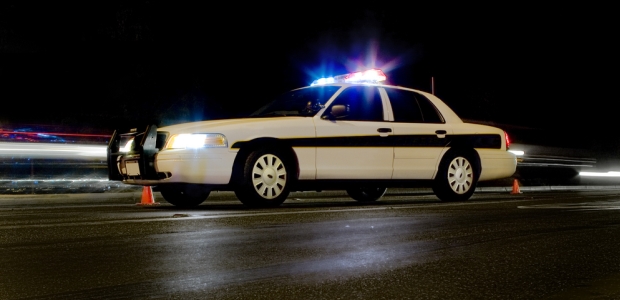
National Academies Report Endorses Lower BAC, Higher Alcohol Taxes
"The plateauing fatality rates indicate that what has been done to decrease deaths from alcohol-impaired driving has been working but is no longer sufficient to reverse this growing public health problem," Committee Chair Steven Teutsch said. "Our report offers a comprehensive blueprint to reinvigorate commitment and calls for systematic implementation of policies, programs, and systems changes to renew progress and save lives."
"Getting to Zero Alcohol-Impaired Driving Fatalities," a new report from the National Academies of Sciences, Engineering, and Medicine, recommends reducing state laws criminalizing alcohol-impaired driving from 0.08 to 0.05 percent blood alcohol concentration (BAC), increasing alcohol taxes significantly, and other actions to address the persistent problem of alcohol-impaired driving deaths.
There are more than 10,000 alcohol-impaired driving fatalities annually in the United States, and the report says stakeholders that range from transportation systems to alcohol retailers to law enforcement should join forces to implement policies and systems to eliminate these preventable deaths.
The committee that conducted the study and wrote the report recommended a number of actions lowering state laws on BAC, raising alcohol taxes significantly, strengthening policies to prevent illegal alcohol sales to people under 21 and to already intoxicated adults, enacting all-offender ignition interlock laws, and providing effective treatment for offenders when needed.
"While getting to zero alcohol-impaired driving deaths sounds like an overly ambitious goal, it builds on the momentum of Vision Zero, an approach that recognizes that traffic-related fatalities are not just 'accidents,' but rather are embedded in a network of events and circumstances with causal links that can be averted," said Steven Teutsch, the committee chair and adjunct professor at the UCLA Fielding School of Public Health, senior fellow at the Public Health Institute, and senior fellow at the Leonard D. Schaeffer Center for Health Policy and Economics at the University of Southern California. "The plateauing fatality rates indicate that what has been done to decrease deaths from alcohol-impaired driving has been working but is no longer sufficient to reverse this growing public health problem. Our report offers a comprehensive blueprint to reinvigorate commitment and calls for systematic implementation of policies, programs, and systems changes to renew progress and save lives."
According to the report, on average since 1982, one third of all traffic fatalities are due to alcohol-impaired driving and nearly 40 percent of alcohol-impaired driving deaths are victims other than the drinking driver. And in 2010 alone, the total economic cost of these crashes was $121.5 billion, including medical costs, earnings losses, productivity losses, legal costs, and vehicle damage.
Rural areas are disproportionately affected by alcohol-impaired driving crashes and fatalities, it shows.
In all 50 states, drivers age 21 or older are prohibited from driving with a BAC at or above 0.08 percent. But the committee found that an individual's ability to operate a motor vehicle (including a motorcycle) begins to deteriorate at low levels of BAC, increasing a driver's risk of being in a crash, and that studies from countries that have decreased their BAC laws to 0.05 percent -- such as Austria, Denmark, and Japan -- demonstrate this is an effective policy.
There were more than 1 million arrests in the United States for DUI in 2015, and while about 20 percent to 28 percent of first-time DWI offenders will repeat the offense, reoffenders are 62 percent more likely to be involved in a fatal crash, it says, adding that there is strong evidence from the United States and other countries, such as Canada, that individuals convicted of alcohol-impaired driving who have ignition interlocks installed on their vehicles are less likely than others to be rearrested for alcohol-related driving or to crash while the device is installed.